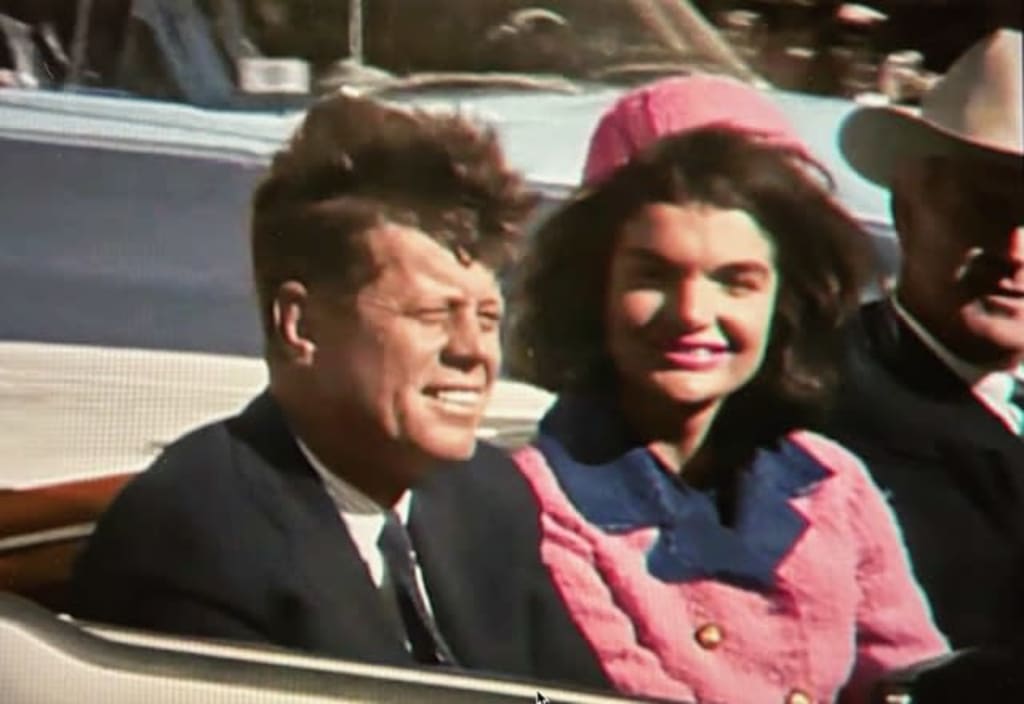
In the sprawling narrative of American history, few events have captured the collective imagination and spurred as much controversy, speculation, and sorrow as the assassination of President John F. Kennedy. It was a moment frozen in the collective memory of a nation, a pivotal point in the 20th century that seemed to mark a loss of innocence for the United States. Let's delve into this epochal event, not just as a recounting of facts, but as a story that continues to whisper lessons and warnings to us, decades after the tragedy unfolded in Dallas, Texas, on that fateful day, November 22, 1963.
The Prelude: A Nation on the Brink
Imagine, if you will, the early 1960s: a time of booming post-war optimism intersected by the chilling fears of the Cold War. JFK, with his charismatic allure and promise of a New Frontier, seemed to embody the very spirit of American progress and idealism. Yet beneath this veneer of hope, the seeds of turmoil were brewing—civil rights struggles, the looming specter of Vietnam, and the ever-present threat of nuclear annihilation. Kennedy, in his quest to navigate these turbulent waters, became a symbol of both American aspiration and the inherent vulnerabilities of its democratic ideals.
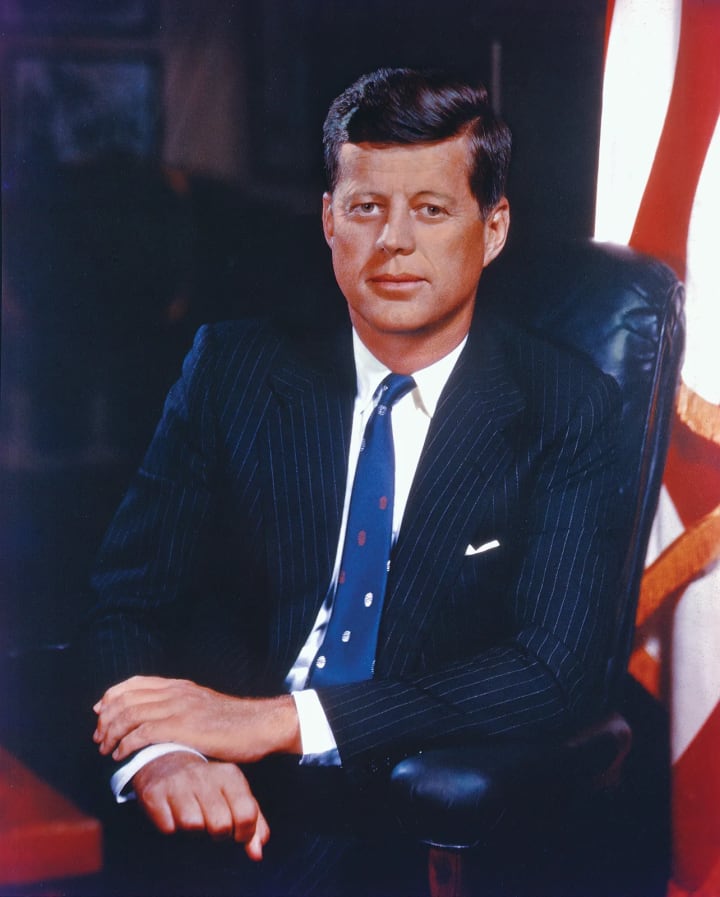
Dallas, November 22, 1963: A Day That Shook the World
On that clear, crisp autumn day, President Kennedy, along with his wife Jacqueline, rode in a motorcade through Dealey Plaza in downtown Dallas, greeting thousands of Americans who lined the streets to catch a glimpse of their leader. Little did they know, these moments of celebration were about to turn into a national nightmare. As the clock struck 12:30 PM, shots rang out, a rifle's echo bouncing off the buildings, and in mere seconds, the course of history was altered. JFK was struck by two bullets, and despite the frantic efforts to save him, was pronounced dead at Parkland Memorial Hospital shortly thereafter. The stark, brutal reality of his death was not just a personal tragedy for his family but a communal trauma for the nation and the world.
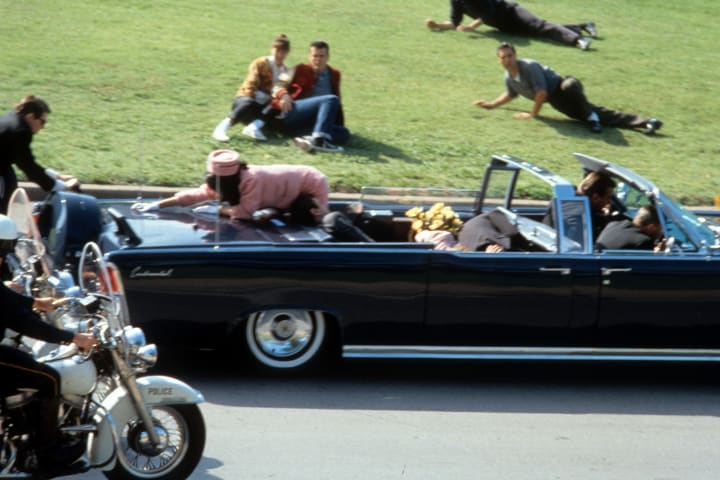
The Aftermath: A Nation Mourns, A World Watches
The assassination of JFK sent shockwaves around the globe, plunging the United States into a deep state of mourning and uncertainty. The image of Jackie Kennedy, clad in her blood-stained pink Chanel suit, standing stoically beside Lyndon B. Johnson as he took the oath of office on Air Force One, remains etched in the annals of American memory. It symbolized the abrupt transition from a period of youthful optimism to one of cynicism and doubt. The subsequent state funeral, with its haunting images of the Kennedy family and the young John F. Kennedy Jr. saluting his father's casket, captured the collective grief of a nation grappling with an incomprehensible loss.
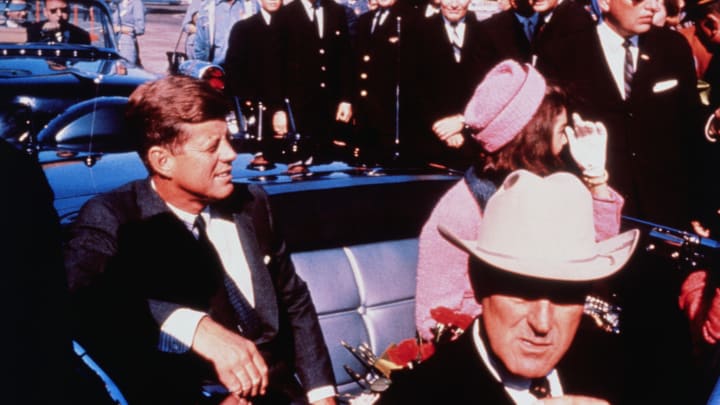
The Conspiracy Theories: A Labyrinth of What-Ifs
In the wake of the assassination, the official investigation led by the Warren Commission concluded in 1964 that Lee Harvey Oswald acted alone in killing President Kennedy. However, this finding did little to quell the public's thirst for answers. Over the years, a myriad of conspiracy theories have flourished, involving parties as varied as the Mafia, the CIA, the KGB, and even Vice President Lyndon B. Johnson. These theories reflect not just a skepticism towards the official narrative, but a deeper questioning of the machinations of power, secrecy, and the very nature of truth in a media-saturated society.
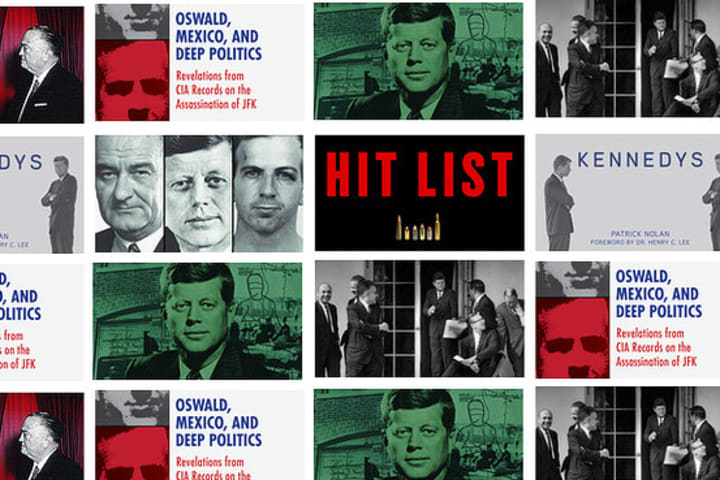
Reflections: The Legacy of JFK and His Assassination
The assassination of JFK, much like the man himself, has become a symbol of unfulfilled potential and the fragility of hope. Kennedy's vision for America, his push for civil rights, his desire to put a man on the moon—these aspirations were not merely policy goals but emblematic of a broader striving towards a brighter future. In his death, many felt not just the loss of a leader, but the dimming of that bright future he envisioned.
Yet, as we look back on this tragedy through the lens of history, we find not only sorrow but also a source of inspiration. JFK's legacy, marked by his eloquence, his courage, and his unyielding belief in the promise of America, continues to resonate. It reminds us that, though the path may be fraught with challenges and setbacks, the pursuit of a better world is always a cause worth championing.
In the narrative of JFK's assassination, we find a mosaic of American identity—its ambitions, its vulnerabilities, and its enduring spirit. It's a story that compels us to reflect on the nature of leadership, the complexities of history, and the ceaseless quest for truth. As we delve into this tale, let us remember that it's not just about the loss of a president, but about the enduring impact of his vision, and how it continues to shape the trajectory of the nation and the world. The echoes of that day in Dallas still reverberate, reminding us of the cost of greatness and the price of dreams deferred.
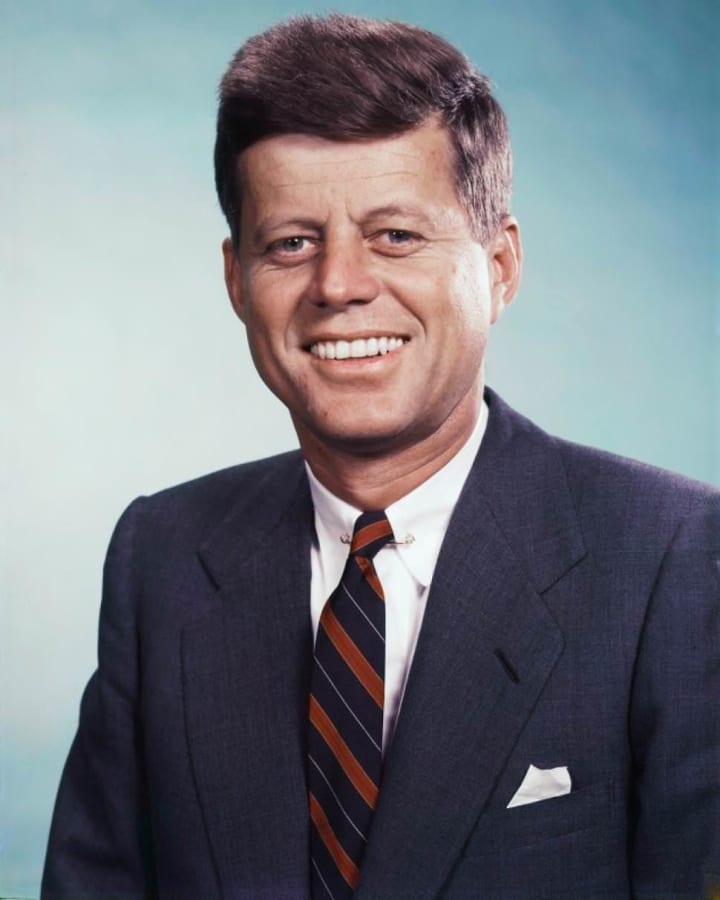
About the Creator
Mr Shelby
“In this world, everything is governed by balance. There’s what you stand to gain and what you stand to lose." Read my blogs at theoryoflife24.com


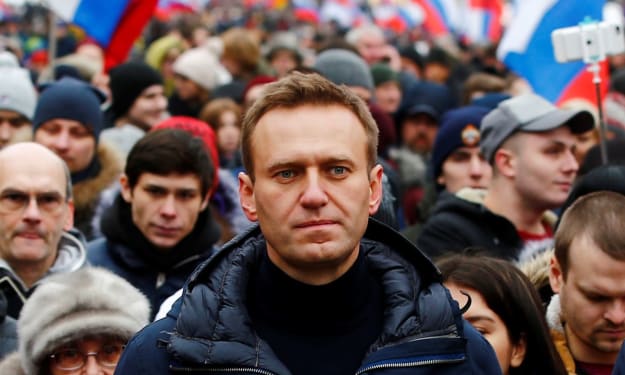



Comments (1)
well-written and informative.